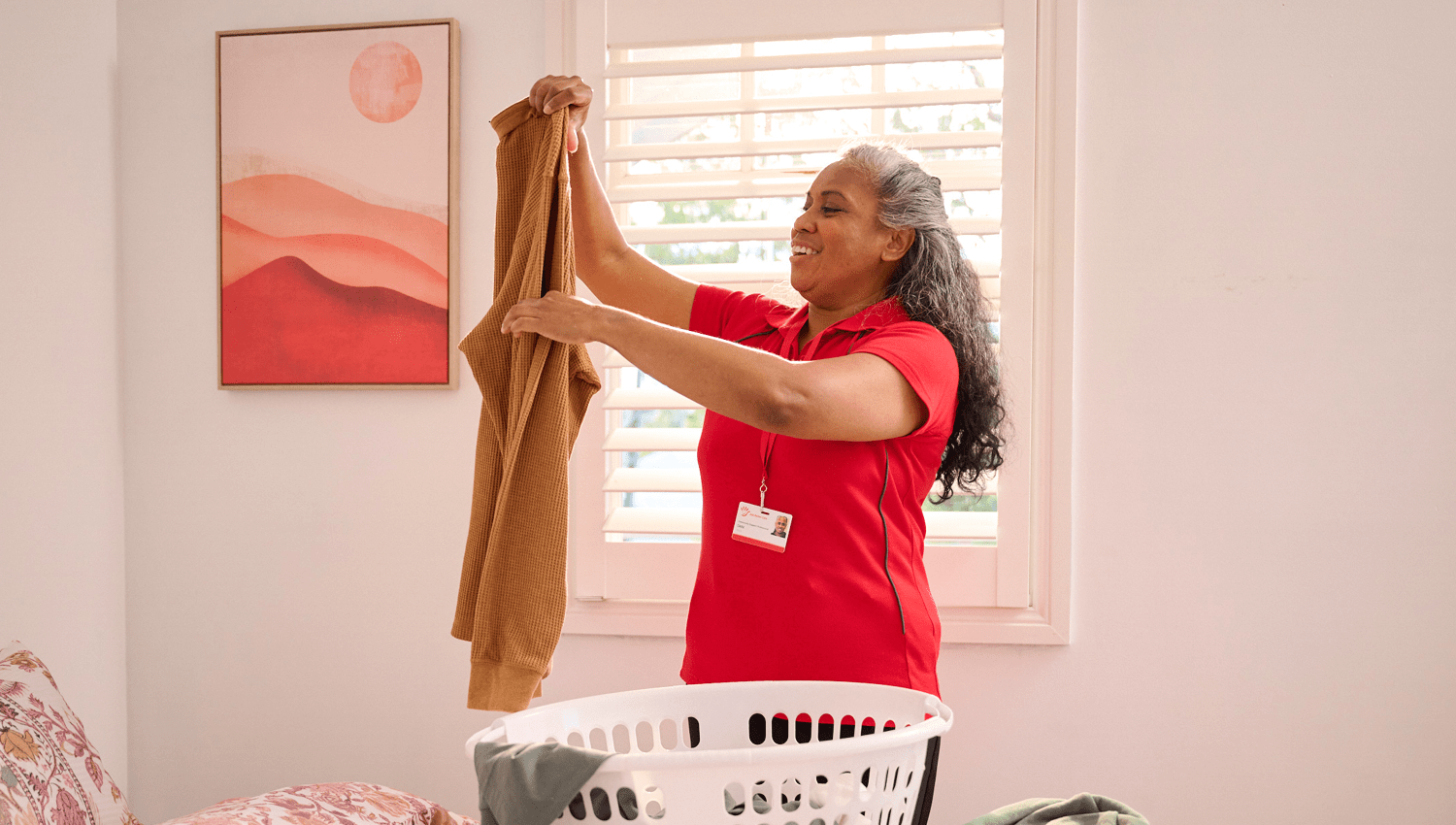Eligibility for Support at Home
From 1 November 2025, Just Better Care will proudly deliver aged care services under the Australian Government’s new Support at Home program—designed to provide older Australians with the flexibility and support they need to remain independent in their own home.
Who is eligible for Support at Home?
You may be eligible for Support at Home services if you:
- Are aged 65 years or older (50 years or older for Aboriginal or Torres Strait Islander peoples), and
- Need assistance with everyday tasks due to age-related changes or health conditions
- Live at home and want to continue living independently for as long as possible
If you already receive government-funded services, you will be transitioned to Support at Home (i.e. CHSP, HCP).
How do I get assessed?
To access Support at Home, you’ll need an aged care assessment through My Aged Care. This is a free and independent assessment that helps determine your eligibility and the level of support that’s right for you.
You can learn more about the assessment process, including how to prepare and what to expect, on our ACAT Assessment page
What is a Notice of Decision Letter?
After your assessment, you’ll receive a Notice of Decision Letter from My Aged Care. This is the official document that confirms your eligibility for the Australian Government’s Support at Home program.
Your letter outlines:
Your approved support level
Your funding budget
The types of services you can access
Your Just Better Care team can help you understand your Notice of Decision Letter and guide you through the next steps to get support in place.

